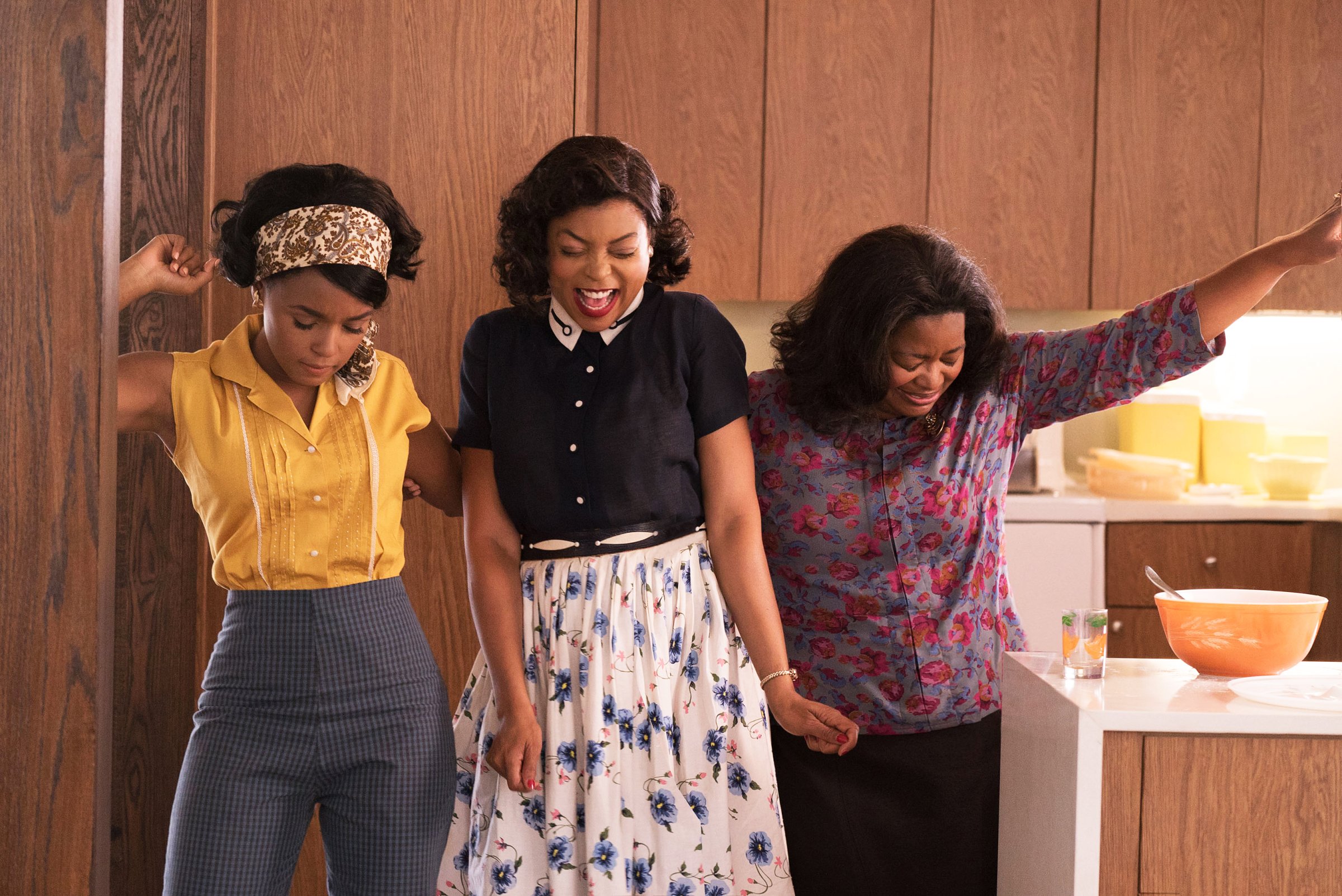
In the grand scheme, numbers mean everything: Our very bodies are made of equations. Yet movies about people who deal in numbers—often foisted on us as spinachy, good-for-us entertainment during prestige-movie season—tend to be deadly dull. Who needs to see another white dude grab a piece of chalk and start writing feverishly on a blackboard?
But even if numbers are everywhere, they still have the capacity to surprise us. Hidden Figures, both a dazzling piece of entertainment and a window into history, bucks the trend of the boring-math-guy movie. Its characters are based on real-life people, a trio of African American math whizzes who also happened to be women, and who were employed by NASA in the early 1960s to help crunch crucial data for the first space missions. When Al Harrison (Kevin Costner), the harried engineer in charge of NASA’s groovily named Space Task Group, asks in exasperation, “We don’t have a single person in this entire building that can handle analytic geometry?” the unassuming woman who’s sent to his office is Katherine Johnson (Taraji P. Henson), a former child prodigy who has found work at Langley Research Center as a “computer,” the term given to women skilled at running calculations on an adding machine. (And because this is pre-integration Virginia we’re talking about, she’s dispatched from a room designated for “Colored Computers.”)
Katherine can do more than just run an adding machine, as she quickly proves. Even so, the obstacles she faces are almost as daunting as putting a man into space. Jealous, resentful colleagues (one of them played by The Big Bang Theory’s Jim Parsons) try to undermine her: She’s black and a woman, a double whammy their threatened white male egos just can’t handle. When she tries to pour coffee from the office’s communal coffee pot, her colleagues, all white and nearly all male, shoot knowing glances at one another—and the next day, a small, separate-but-supposedly-equal pot appears on the table, specifically for her use. The only restroom she’s allowed to use is in another building, a half mile away. She brings her work with her on these bathroom breaks, but that doesn’t matter. The round trip takes so long that her absence raises eyebrows.
Meanwhile, two of Katherine’s friends and colleagues at Langley steer around their own roadblocks: Utra-capable Dorothy Vaughan (Octavia Spencer) is doing the work of a manager, though her covertly racist boss (Kirsten Dunst) refuses to either promote her or pay her what she’s worth. And Mary Jackson (Janelle Monáe), another gifted mathematician, decides to make the leap to become an engineer—only to find that if it’s hard enough for a white woman to pull that off, it’s nearly impossible for a woman of color.
It’s one thing, though, to outline what Hidden Figures is about. It’s something else to bask in the movie’s spirit. Directed by Theodore Melfi (St. Vincent) and adapted from Margot Lee Shetterly’s book Hidden Figures: The Untold Story of the African American Women Who Helped Win the Space Race, the picture is buoyant and alert every minute. Henson, Spencer and Monáe all give superb, luminous performances: Watching them is pure pleasure. Even Katherine’s big writing-on-the-blackboard moment is different from similar scenes we’ve seen thousands of times before. Her drive to use numbers to show the world who she truly is has a specific and pointed context here: Numbers have no color, and no gender, either.
And when Katherine walks into the Space Task Group office for the first time—as a sea of white guys in identical white shirts and dark ties turn to stare at her, wondering what on Earth she’s doing there—the spirit of the room shifts perceptibly. She’s different from them, because she’s a woman and she’s black. In her simple, unassuming plaid dress and smart-girl cat’s-eye glasses, she’s about to challenge their world—and change it for the better. Hidden Figures brings that stealth triumph into the light, one number at a time.
More Must-Reads From TIME
- The 100 Most Influential People of 2024
- The Revolution of Yulia Navalnaya
- 6 Compliments That Land Every Time
- Stop Looking for Your Forever Home
- If You're Dating Right Now , You're Brave: Column
- The AI That Could Heal a Divided Internet
- Fallout Is a Brilliant Model for the Future of Video Game Adaptations
- Want Weekly Recs on What to Watch, Read, and More? Sign Up for Worth Your Time
Contact us at letters@time.com